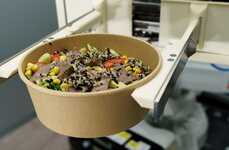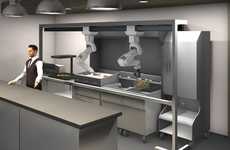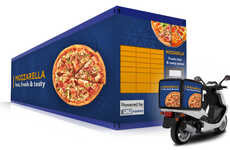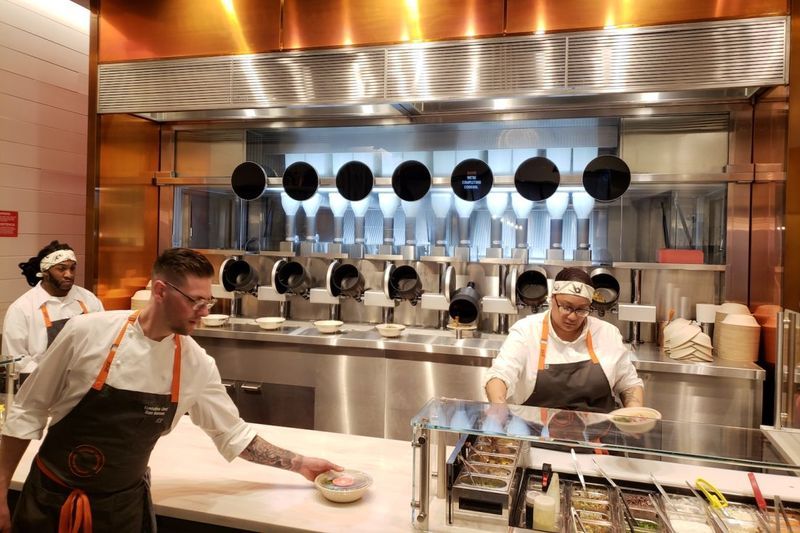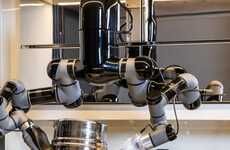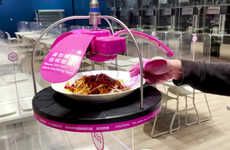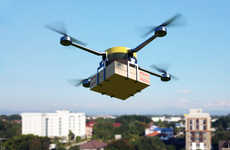
Spyce Food Utilizes a Giant Robot to Cook Bowl-Based Meals
Justin Lam — May 7, 2018 — Tech
Spyce Food recently opened its doors in Boston and could spell the end for regular restaurant employees. Launched as a joint venture between four former MIT students and a Michelin-starred chef, this new eatery serves up bowl-based meals crafted by an almost fully robotic kitchen. In fact, almost all of the restaurant is entirely mechanized, as customers order from touchscreen kiosks, with humans sticking around for general assistance.
The kitchen aspect of Spyce Food is by far the most mechanized part of the restaurant as a massive piece of machinery cooks each food order. By using magnetic induction, the machine is able to heat the food and automatically rinse itself off after preparing each dish. However, Spyce Food still does need human operators as the machine is currently incapable of prepping the ingredients, nor can it garnish finished meals.
Image Credit: Spyce, Jeff Engel
The kitchen aspect of Spyce Food is by far the most mechanized part of the restaurant as a massive piece of machinery cooks each food order. By using magnetic induction, the machine is able to heat the food and automatically rinse itself off after preparing each dish. However, Spyce Food still does need human operators as the machine is currently incapable of prepping the ingredients, nor can it garnish finished meals.
Image Credit: Spyce, Jeff Engel
Trend Themes
1. Mechanized Restaurants - The rise of fully automated kitchens in restaurants presents disruptive innovation opportunities for streamlining food production processes and reducing labor costs.
2. Touchscreen Kiosk Ordering - The adoption of touchscreen kiosks for customer ordering in restaurants opens up disruptive innovation opportunities for faster and more accurate order processing, increasing customer satisfaction.
3. Robotic Food Preparation - The advancement of robotic food preparation technology paves the way for disruptive innovation in the culinary industry, enabling efficient and consistent meal production without the need for human chefs.
Industry Implications
1. Restaurant Industry - The restaurant industry can explore disruptive innovation opportunities by embracing mechanized kitchens, touch screen ordering systems, and robotic food preparation techniques to enhance operational efficiency and customer experience.
2. Foodservice Equipment Manufacturing - The foodservice equipment manufacturing industry has the potential to disrupt traditional kitchen equipment by developing and commercializing advanced robotic cooking systems and touchscreen kiosks for automated restaurants.
3. Hospitality Technology - The hospitality technology sector can tap into disruptive innovation opportunities by creating software solutions and integrating technologies that optimize mechanized restaurant operations, including touchscreen ordering, robotic food preparation, and automated kitchen management systems.
6.1
Score
Popularity
Activity
Freshness


